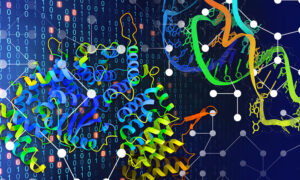Getting a grip on complexes: EMBL scientists develop first fully automated pipeline for multiprotein complex production
Most cellular processes are carried out by molecular machines that consist of many interacting proteins. These protein complexes lie at the heart of life science research, but they are notoriously hard to study. Their abundance is often too low to extract them directly from cells and generating them with recombinant methods has been a daunting task. A new technology to produce multiprotein complexes, developed by researchers at the European Molecular Biology Laboratory (EMBL) in Grenoble, France, and the Paul Scherrer Institute (PSI) in Villigen, Switzerland, now makes the biologist’s life easier.
In a paper published in the current issue of Nature Methods, researchers of the groups of Imre Berger at EMBL and Michel Steinmetz at the PSI describe ACEMBL, the first fully automated pipeline for the production of multiprotein complexes. Requiring much less effort and materials, the new pipeline will speed up structural studies of protein complexes and will allow to decipher as yet elusive molecular mechanisms of health and disease.
ACEMBL can produce complexes consisting of different types of components, including protein, RNA and other biomolecules. Currently designed to express proteins in the standard system Escherichium coli, the automated pipeline will in future be adapted for complex production in eukaryotic cells. This will allow the study of even larger, more complicated complexes of human origin, including many promising drug targets. The system has already attracted commercial interest.



